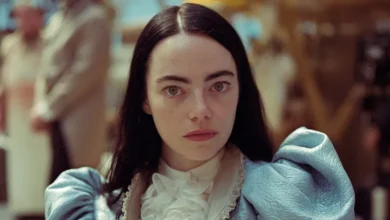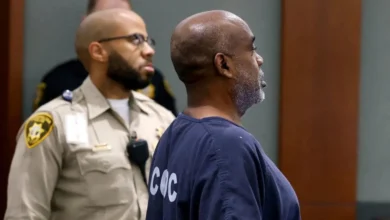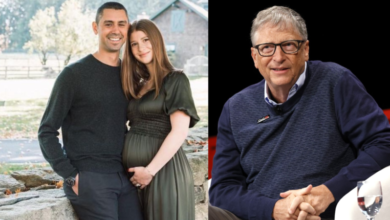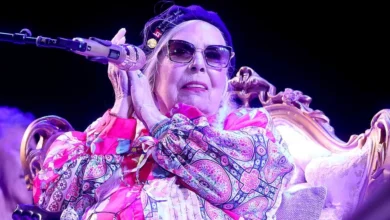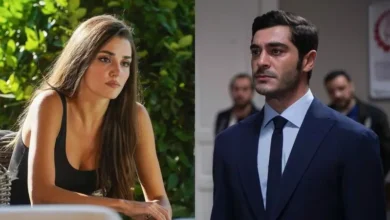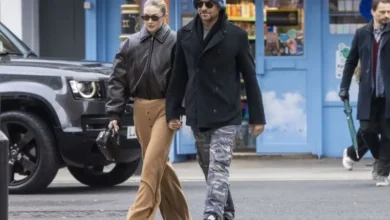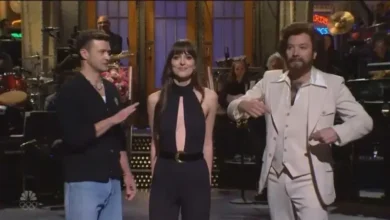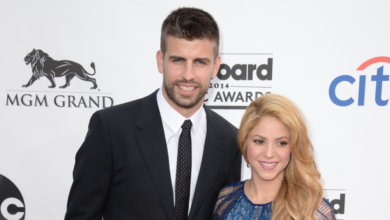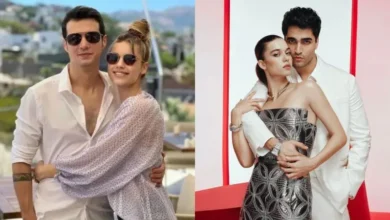Who is Russell Brand, the comedian and actor accused of rape and sexual assault?
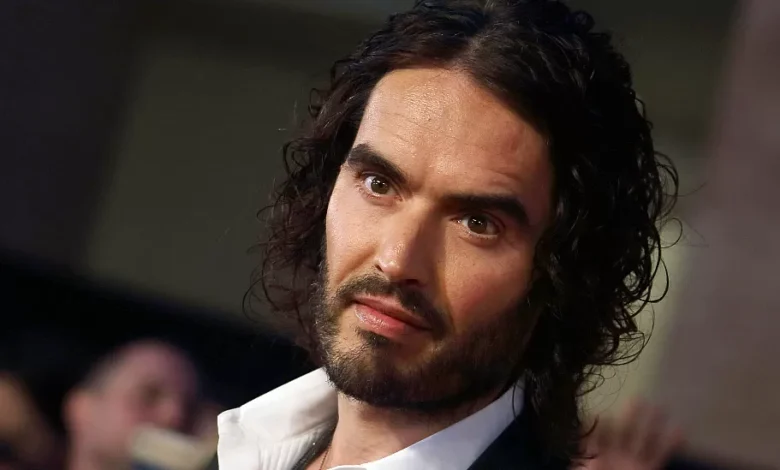
Russell Brand, who has been accused of sexual assault by four women, is a comedian and broadcaster who helped shape pop culture in the late noughties.
The 48-year-old, who was born in Essex, surged to fame as the host of Big Brother’s Big Mouth, and went on to star in Hollywood films, marry and divorce one of the world’s most famous pop stars and cause one of the biggest scandals in the history.
Over the years, he developed a cult following for his views on politics and society, and more recently has dabbled in the world of conspiracy theories in videos posted on YouTube and Rumble.
But Brand started his career in entertainment as a stand-up comedian, performing at the Hackney Empire in 2000 and later the Edinburgh Fringe.
Much of his content drew on personal experience – Brand has always been open about his use of illegal drugs and addiction to sex. He would later write about both in his autobiography My Booky Wook, and his experiences helped shape his political activism.
In the early part of his career, Brand hosted radio programmes on XFM and later BBC 6 Music, and went on tour with his stand-up shows, which saw him build a following on the comedy circuit.
Once of his earliest controversies came in 2001, when he was dismissed from his job as an MTV presenter for turning up to work dressed as Osama Bin Laden on 12 September – the day after the terror attacks on New York’s twin towers.
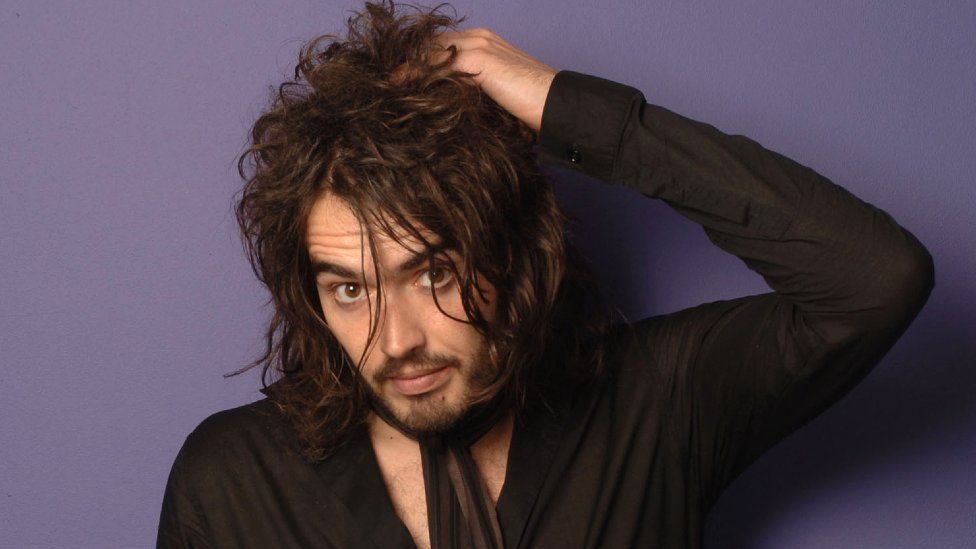
Brand later admitted he was on crack and heroin at the time. But although stunts such as this attracted publicity, Brand was still not yet the household name he would become.
The turning point in Brand’s career came in mid-2000s, when he hosted Big Brother’s Big Mouth, the E4 companion show to the hugely popular reality series Big Brother.
The comic was in his element hosting the spin-off show, previously titled Big Brother’s Efourum. Its format saw him bounce around the bright yellow studio interacting with special guests and members of the public, who would give opinions on the latest goings on in the Big Brother house.
It was an environment in which he thrived – his distinctive blend of charisma and humour on a fast-paced show putting him firmly on the radar. He was unique in the television landscape; the sheer force of his personality – and volume of his speaking voice – impossible to ignore.
His aesthetic – skinny jeans, dark clothing, big hair – reflected pop culture at the time. His gothic look was often compared with Amy Winehouse, the troubled singer who would die from alcohol poisoning in 2011.
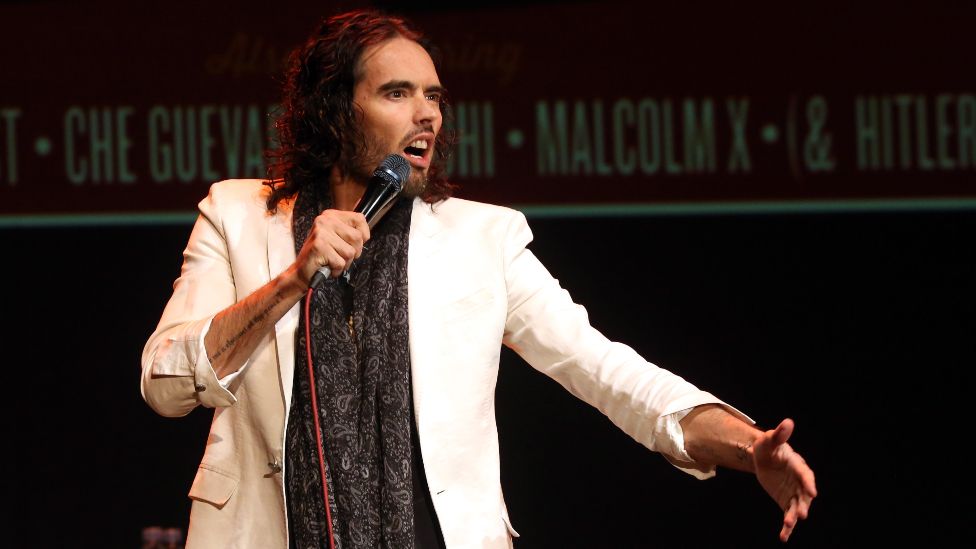
From the beginning, Brand’s personality was not for everyone, and for every viewer who loved him, there was another who couldn’t stand him. But his divisiveness only increased his cultural cachet.
Big Brother’s Big Mouth ultimately provided the springboard he was looking for – Brand went from being just one comic in a sea of thousands at Edinburgh to being the most sought-after presenter in the UK.
In the years that followed, he was courted for so many presenting gigs that it was hard to keep up. Brand hosted the NME, MTV and Brit awards ceremonies, was gifted his own debate series by E4, and fronted the UK leg of charity concert Live Earth.
But phonecalls he made to the Fawlty Towers actor Andrew Sachs on the show in 2008 prompted a huge scandal – which came to be known as Sachsgate.
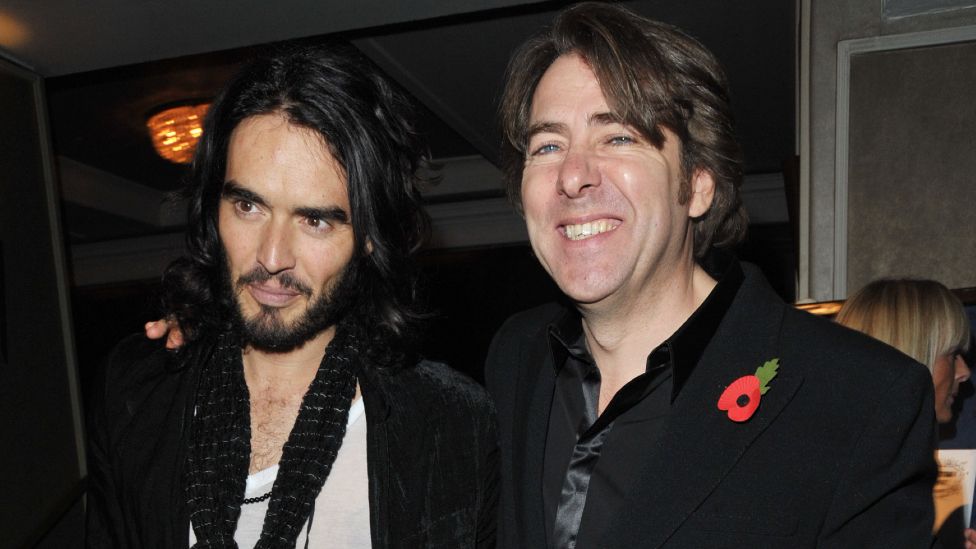
Sachs had been due to be interviewed by Brand on that night’s pre-recorded show to promote a new TV series.
But when he failed to appear, Brand and Jonathan Ross, who was also a guest on that show, left an offensive voicemail message for the actor, in which Ross made clear that Brand had slept with Sachs’ granddaughter.
During the rest of the show, the pair made attempts to rectify the situation to comic effect, by leaving a series of further explicit voicemails which also mentioned the actor’s granddaughter, Georgina Baillie.
More than 40,000 people complained after the broadcast was reported in the newspapers. The BBC Trust ruled the phonecalls were “grossly offensive” and the corporation was fined £150,000 by Ofcom.
Brand left the station, Ross was suspended from the BBC for 12 weeks, and Radio 2’s controller Lesley Douglas resigned.
By now, he was developing his career as an actor and being cast in major films, including St Trinian’s, Forgetting Sarah Marshall, Rock of Ages and a remake of Arthur co-starring Dame Helen Mirren.
In summer 2009, Brand met Katy Perry, one of the world’s most successful pop stars, when she filmed a cameo for his film Get Him to the Greek.
The pair became engaged and were married the following year at a Hindu ceremony in India, but divorced two years later.
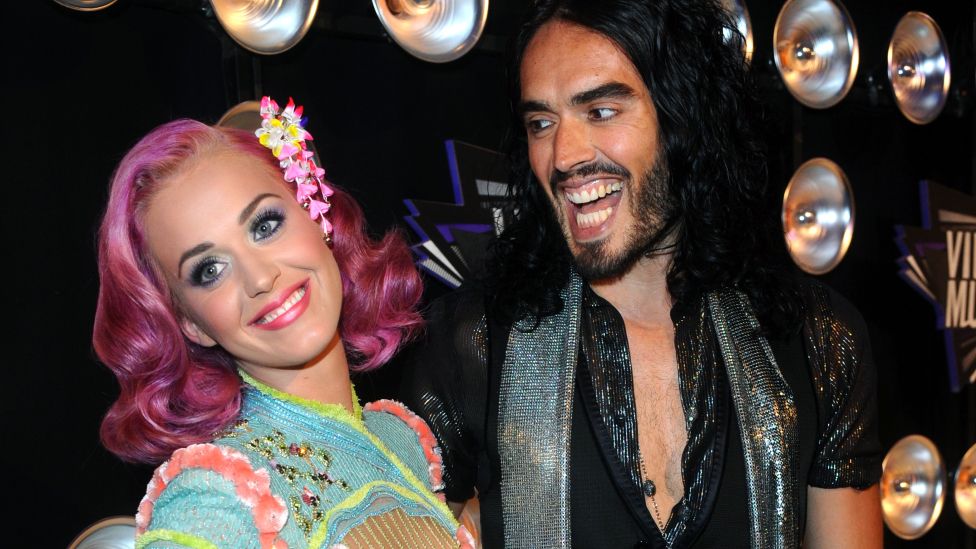
Meanwhile, Brand was becoming just as well known for his political views as his work.
He guest edited an issue the left-leaning current affairs magazine the New Statesman, appeared on Question Time opposite then-Ukip leader Nigel Farage, and was interviewed by Jeremy Paxman on Newsnight.
Brand told Paxman he did not vote in general elections “out of weariness and exhaustion from the lies, treachery and deceit of the political class that has been going on for generations”, and encouraged viewers to abstain from voting too.
In 2012, Brand appeared at a Home Affairs select committee to discuss drug and alcohol addiction, although the jokes he cracked during the session attracted just as much publicity. One MP had to tell him the session was “not a variety show”.
However, he repeatedly declined to enter the political fray himself by running for parliament.
Instead, arguing for alternative systems of government became one of his core principles. He complained about the limited choices for voters – although did briefly endorse Ed Miliband ahead of the 2015 general election.
Brand has consistently attracted controversy, often at awards ceremonies – which provided the kind of live, anything-can-happen chaos in which Brand was most at home.
After Bob Geldof insulted him at the NME Awards in 2006, Brand retaliated by saying the musician and campaigner was only an expert on famine because he had “been dining out on I Don’t Like Mondays for 30 years”.
Two years later, while hosting the 2008 MTV Video Music Awards, Brand told the American audience that then-US president George W Bush “wouldn’t be trusted with scissors” in the UK.
And in 2013, he was ejected from the GQ Awards after he criticised the event’s sponsor Hugo Boss for its history making uniforms for the Nazis.
Brand returned to radio in 2017 with a new weekend show on Radio X, formerly XFM. However, the show lasted less than a year.
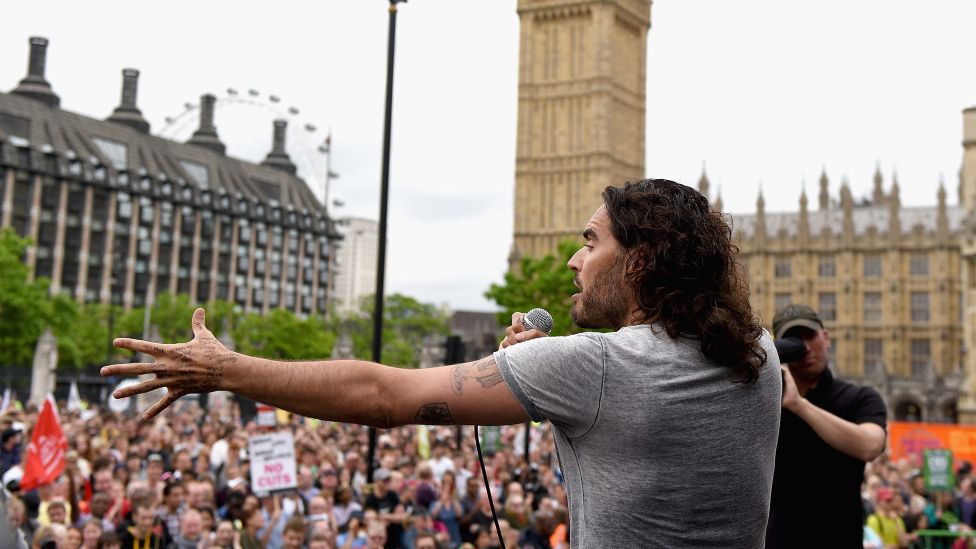
After the success of his first autobiography, Brand went on to publish a second – Booky Wook 2: This Time It’s Personal – as well as further books about politics and his recovery from addiction.
Recent years have seen him take a new direction – particularly since the start of the Covid pandemic in 2020. Brand grew his following on YouTube as he discussed conspiracy theories surrounding the disease.
Stepping away from the directors and production teams of his TV and movie career, Brand’s videos generally show him speaking directly to the camera in a single take, using his notable range of verbal dexterity to challenge the mainstream reporting of a range of subjects – and has also established himself as a wellness guru.
He now commands a following of four million in Instagram, 2.2 million on TikTok and 6.59 million on YouTube, for his near daily polemics on a range of subjects – with video titles including Do These Emails Prove Biden Is Corrupt And Lying?, What REALLY Started The Hawaii Fires? and THIS is How Gender Norms Are Affecting Men.
When one of his Covid videos was removed for breaking rules around misinformation, he launched a daily live show on a new platform, Rumble, titled Stay Free with Russell Brand.

